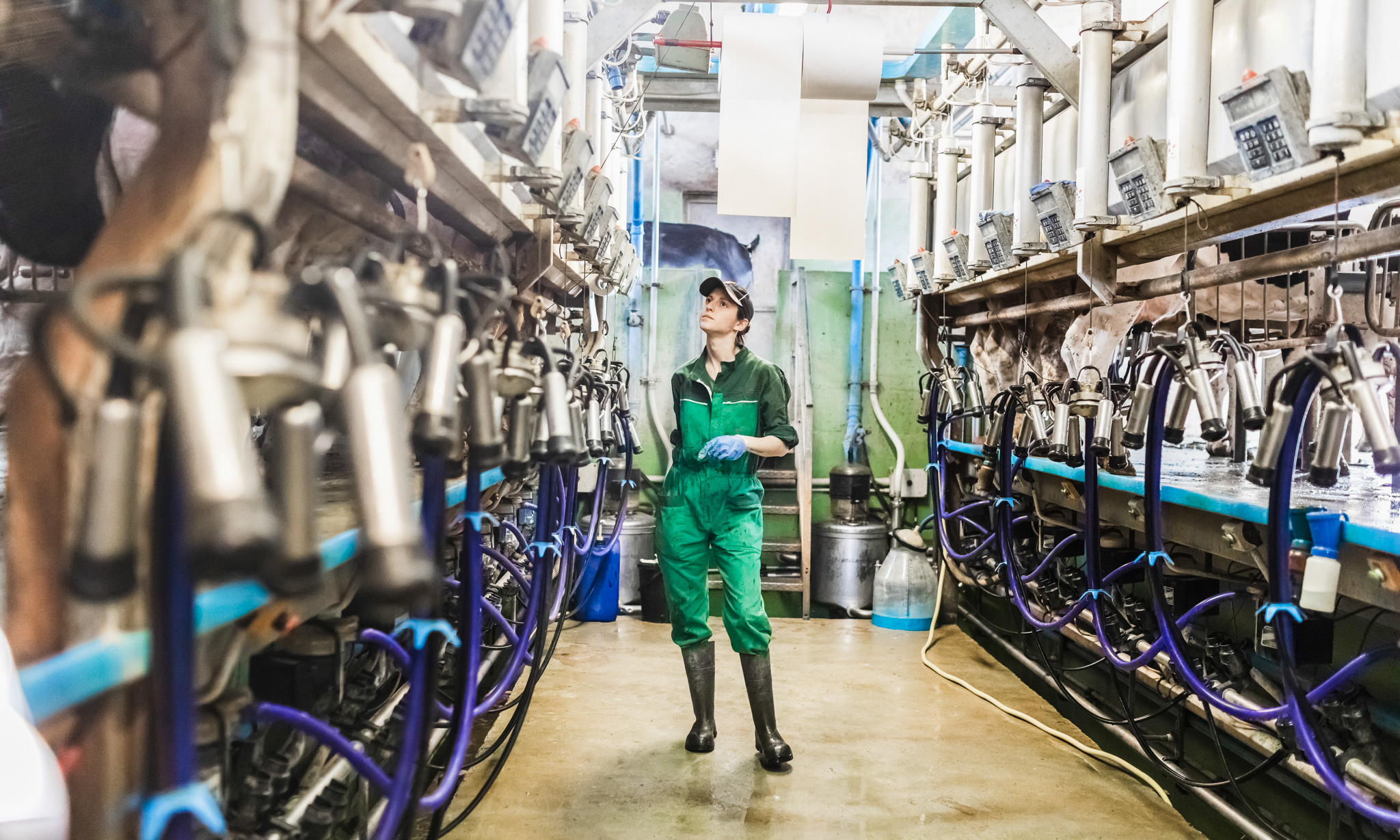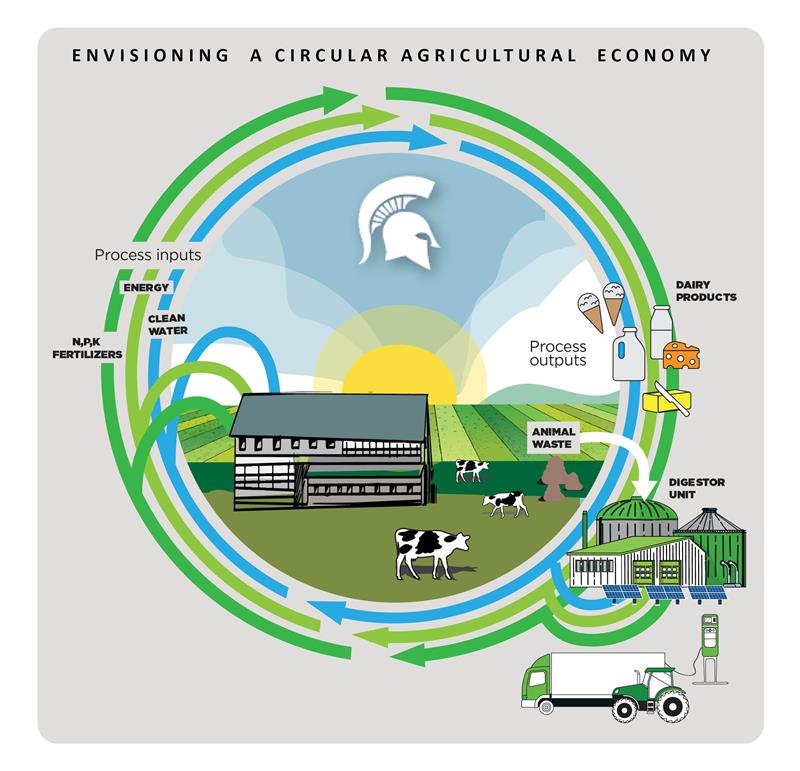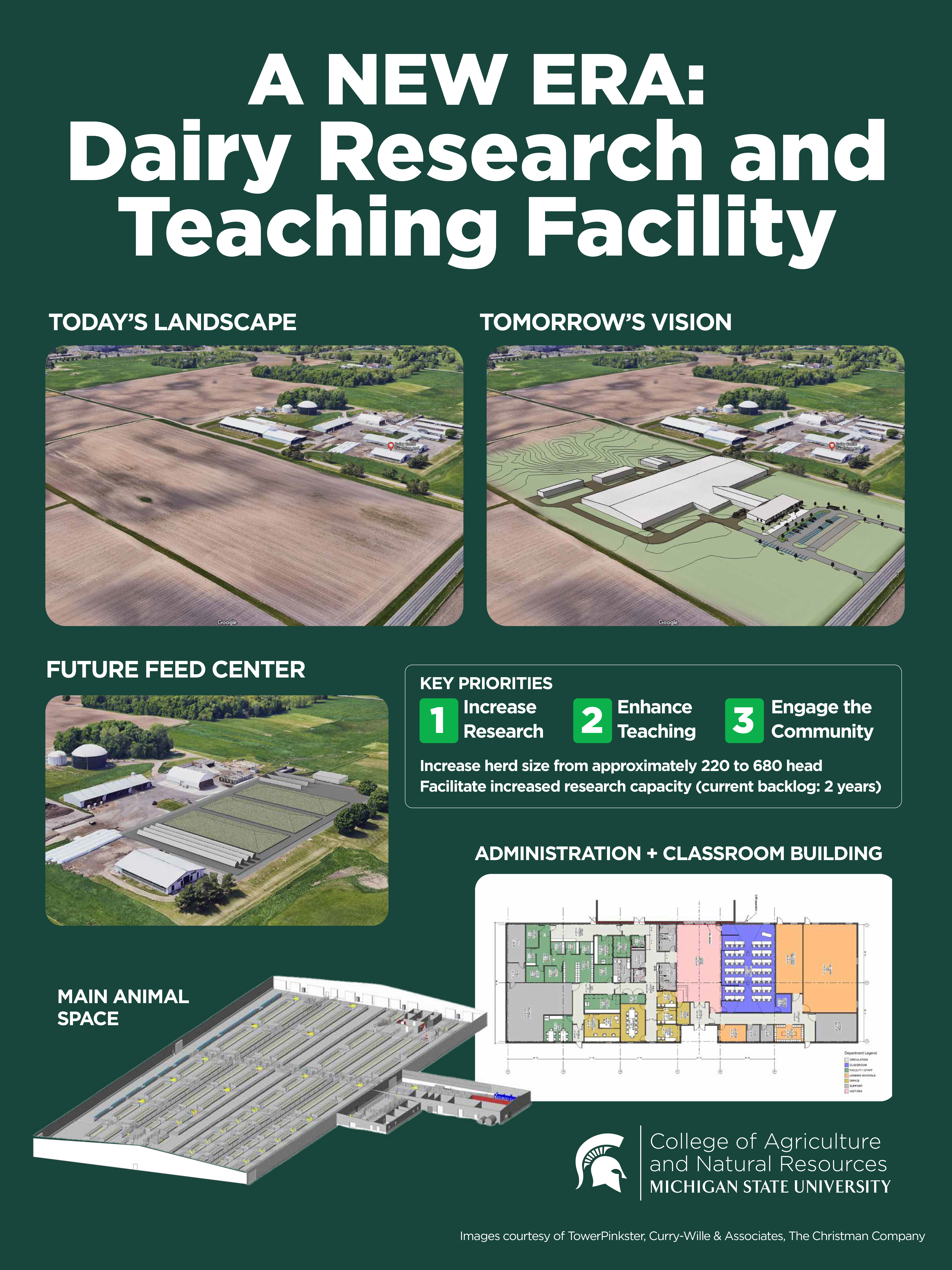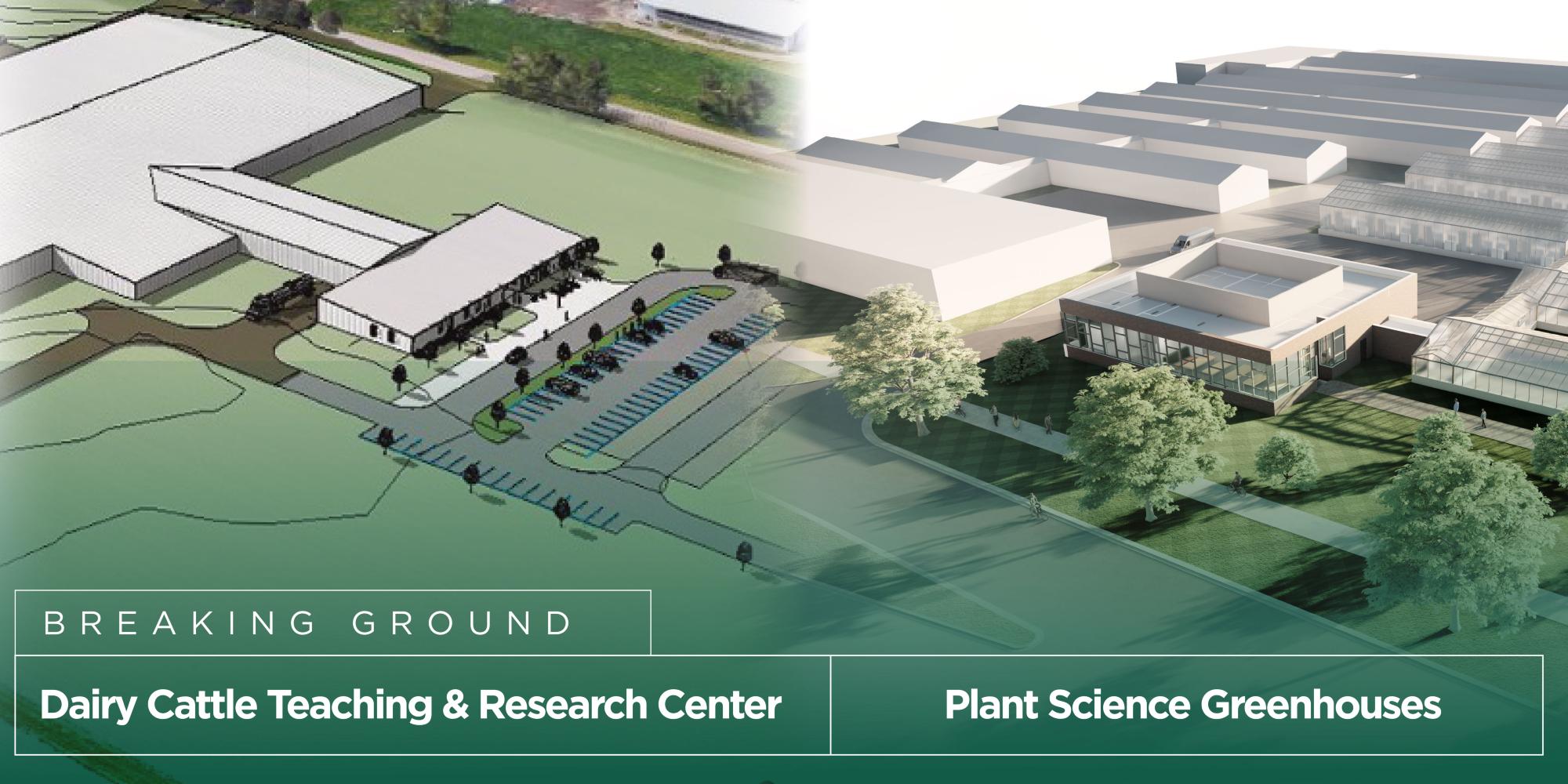 The state of Michigan’s transformative $30 million investment in MSU’s new Dairy Teaching and Research Center has paved the way for a modernized facility with a larger herd, more research capacity and new spaces to train tomorrow’s agricultural workforce.
The state of Michigan’s transformative $30 million investment in MSU’s new Dairy Teaching and Research Center has paved the way for a modernized facility with a larger herd, more research capacity and new spaces to train tomorrow’s agricultural workforce.
Thanks to advocacy from commodity partners, farm organizations and bipartisan support from state government, we have a once-in-a-generation opportunity to envision the kind of space required to advance the dairy industry for decades to come.
The New MSU Dairy Teaching and Research Center will explore ways to:
- Reduce emissions while promoting sustainability
- Protect communities and waterways
- Advance production efficiency through precision management
- Build a technology-adept agricultural workforce
- Promote animal health, nutrition, reproduction, behavior and wellbeing
MSU’s High-impact Programs, People and Partners 
MSU’s innovative, farm-first research is respected worldwide.
- Highly ranked programs in agriculture, biosystems engineering and veterinary medicine make MSU the best R-1 institution to develop research to help support the dairy industry and dairy farmers application of sustainable agricultural practices. Faculty members have the cross-disciplinary expertise and long-term research programs required to tackle the complex challenges facing the dairy industry, and the institutional support to accelerate their innovations to practice.
- Fostering collaborative relationships with dairy stakeholders has positioned MSU as an established leader in dairy cattle research, education and outreach. This approach ensures our research (including contributions in the areas of nutrition, health, genetics and reproduction) is credible among producers and will benefit farms and communities in meaningful ways.
Circular Agriculture: A Sustainable Path Forward
Dairy farms provide nutrition and employment to communities worldwide, but the industry’s environmental impacts present challenges to producers. To remain viable, it is critical to minimize the environmental footprints of production.
 What’s New: Circular dairy operations can transform manure into renewable sources of fertilizer, water and energy that support the agricultural organization. These farming practices can promote environmental and economic sustainability, while maximizing agricultural output.
What’s New: Circular dairy operations can transform manure into renewable sources of fertilizer, water and energy that support the agricultural organization. These farming practices can promote environmental and economic sustainability, while maximizing agricultural output.
What Matters: Dairy producers face ongoing financial challenges due to the global price instability of necessary inputs and the high costs of waste byproduct generation. Circular practices can “close the loop” by minimizing the environmental footprints of production while decreasing the reliance on volatile and high-cost inputs, making farms more profitable and independent.
What’s Needed: Achieving circularity in dairy operations will require actionable research, a highly skilled workforce and collaborative innovation for implementation – areas where Michigan State University is uniquely positioned to lead.
This is the moment to invest in visionary agricultural methods … but we can’t do it alone.
Comprehensive change requires collaboration. Innovative funding relationships will empower our researchers and educators to support a new type of food industry.
In addition to dairy producers and businesses within the agricultural value chain, we want to work alongside thought leaders in a wide range of industries: energy, food, agricultural equipment, technology and electric vehicles, to name only a few. Our partners will participate in shaping sustainable agriculture, gaining invaluable exposure to tomorrow’s agricultural workforce and decision-makers.
For more information, contact:
Eric Langdon (langdon4@msu.edu)
Senior Director of Development
MSU College of Veterinary Medicine
Jeffrey Martin (mart2767@msu.edu)
Senior Director of Development
College of Agriculture and Natural Resources
.jpg) This project is anticipated to primarily consist of construction of new dairy facilities along with renovations at the existing location on south campus, leveraging some of the existing infrastructure, in particular the methane digester, expanded feed production capacity and nutrient management operations, and may be undertaken in phases.
This project is anticipated to primarily consist of construction of new dairy facilities along with renovations at the existing location on south campus, leveraging some of the existing infrastructure, in particular the methane digester, expanded feed production capacity and nutrient management operations, and may be undertaken in phases.
- Q1 2023 - Hired design firm to develop detailed planning/blueprints √
- Q3 2023 - Submit plan to MSU Board of Trustees and State of Michigan for approval √
- Q2 2024 - Break ground
- Q2 2025 - Construction complete
- Q3 2025 - Move cows
- Q3 2025 - Begin demolition of existing buildings
- Q4 2025 - Complete feed storage infrastructure over the demolition site
Project budget
- Construction (includes 10% contingency) $57.5 million
- University services (project management, IT, site work, etc.) $3.2 million
- Move-in costs (Inspection, state fees, movable equipment) $6.7 million
- Overall project contingency $7.5 million
Total Project Budget: $75 million
Dairy Cattle Teaching and Research Center construction cam
Construction is underway at the site of the MSU Dairy Cattle Teaching and Research Center. The new dairy will expand research capacity, create modernized barns, feed centers, milking parlors, laboratories and student instruction space. The project is budgeted at $75 million and is expected to be completed in 2025.
 MSU College of Agriculture and Natural Resources receives state funding for updated dairy, greenhouse facilities
MSU College of Agriculture and Natural Resources receives state funding for updated dairy, greenhouse facilities
With the passage of higher education spending by the Michigan legislature, Michigan State University will receive $53 million in state funding to update the university’s dairy and greenhouse facilities.
Dairy Facility News
-
Moving forward: Transformational CANR building projects set to break ground
Published on November 9, 2023
MSU greenlights dairy, greenhouse infrastructure projects advancing sustainability and food security. -
MSU researchers link auto and dairy industries to explore sustainable climate solutions
Published on August 7, 2023
Renewable electrical energy produced from anaerobic digesters could drive EV charging stations on dairy farms -
MSU researcher says anaerobic digesters are the wave of the future
Published on December 20, 2022
BAE Professor Dana Kirk works with dairy producers to establish waste management systems and break down barriers to access for farms of all sizes -
MSU professor a ‘pioneer’ in dairy cattle fertility management
Published on October 17, 2022
J. Richard Pursley is a global leader in fertility synchronization, pregnancy loss management research







 Print
Print Email
Email